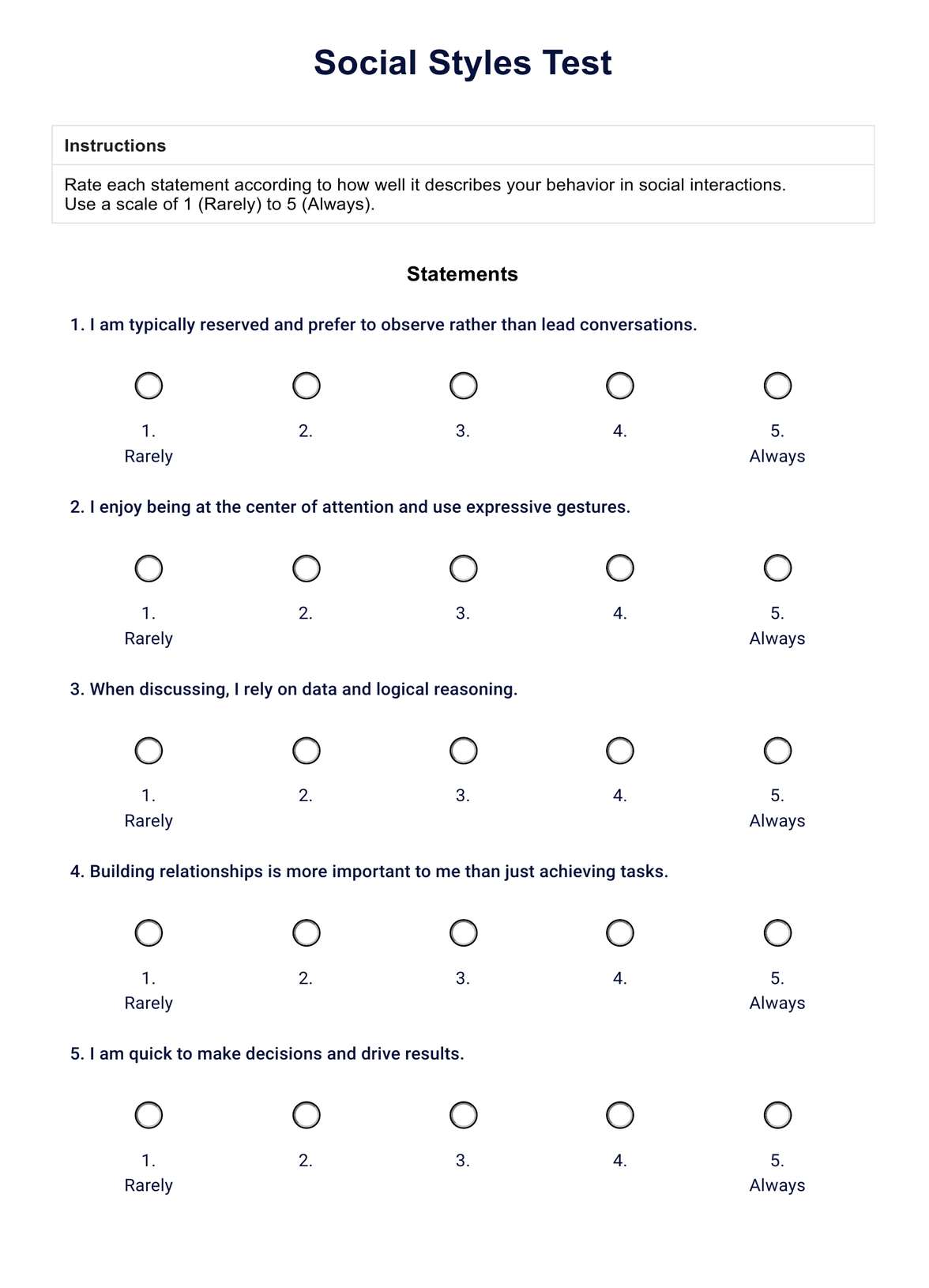Social styles and personality types are frameworks for understanding human behavior, but they differ in focus and application. Social styles refer to people's interactive or communication preferences, particularly in a workplace or group setting.

Understand your unique communication preferences and enhance interpersonal relationships. Download our free Social Styles Test template now.
Social styles and personality types are frameworks for understanding human behavior, but they differ in focus and application. Social styles refer to people's interactive or communication preferences, particularly in a workplace or group setting.
Yes, an individual can exhibit more than one social style. While people tend to have a dominant style, they can also display traits of others or switch between styles depending on the situation, context, or whom they interact with.
Knowledge of social styles can significantly improve team performance by enhancing communication, reducing conflicts, and increasing efficiency.
EHR and practice management software
*No credit card required
Free
$0/usd
Unlimited clients
Telehealth
1GB of storage
Client portal text
Automated billing and online payments